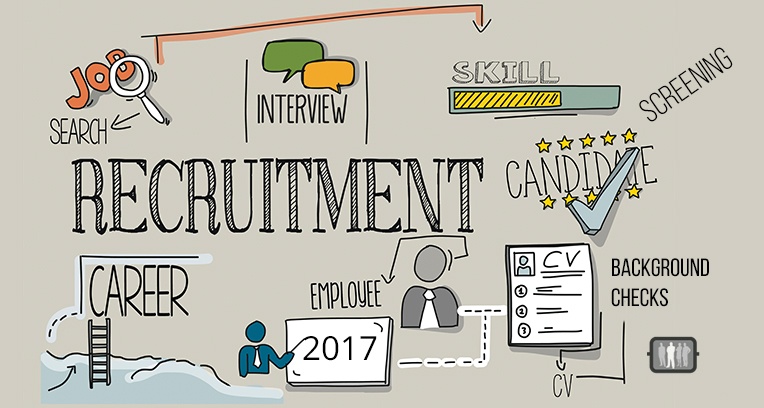Recruiting, Hiring and Screening Trends for 2017
Technology and legislation greatly influence changes in human resources and hiring. Employers must stay aware of these changes in order to retain top talent and steer free of non-compliance and lawsuits. The most searched topics in 2016 within the VeriFirst blog include drug testing, adverse action and criminal background screening. In an attempt to continue to inform and educate our readers, we've examined predicted trends that will continue into 2017.
Here are top recruiting, hiring and background check trends for the upcoming year.
Recruiting & Hiring Trends
The "gig economy": Recruiting trends in 2017 will continue to reflect the changes in the hiring economy. A growing portion of the workforce is choosing to go freelance or independent contract, indicating a continued shift in power from employer to candidate. Because of this trend, more companies will look to hire contractors or "contingent" workers. To attract strong candidates, employers may also search for a broader spectrum skill requirements in order to capture, train and retain workers who adapt quickly.
Technology: Big data, sourcing and HR technology tools are also being leveraged to assess candidates. An increased use and availability of Applicant Tracking Systems (ATS) is predicted, especially in the small-to-medium sized business sector. The use of these systems allow the hiring or recruiting manager to track the candidate journey from initial recruitment to hire and beyond. Candidates are also being enticed by employers using innovative technology and mobile devices for resumes, interviews, questionnaires and messaging.
Personality: Organizations must show more personality and creativeness when advertising and recruiting. Company branding is important, as candidates continue to search for employers who are candidate/employee-friendly, technology adopters, and offer a positive impression.
Referrals: Employers are, at the same time, hoping to reduce the cost of hiring by tapping into talent pools more efficiently. Employee referrals are one such way to accomplish this. Building a strong employee network, with referral benefits, will prompt more internal referrals.
Efficient process: With so many recruiters and hiring managers concerned with missing out on top talent, any opportunities or tools that will decrease the length of the hiring process - especially from recruitment to the initial interview - are predicted to be of more use in the coming year.
Background Screening Trends
Criminal Background Screening: The past few years have shown a continued expansion of Ban the Box or Fair Chance laws across the United States and this will continue into 2017. HR managers should be aware of what to look for with criminal record checks and if the information is relevant to the hiring decision. The EEOC continues to be involved in litigation that disproportionately affects the employment of people of color.
Credit history: With more Americans in debt than ever before, including higher student debt and medical debt, a credit history report may not be a good indicator of the employability of a candidate. California, Colorado, Connecticut, Hawaii, Illinois, Maryland, Nevada, Oregon, Vermont and Washington have now restricted employers from using credit checks in hiring decisions. Hiring managers may notice more limitations on the use of credit history reports for employment purposes.
FCRA Litigation: Lawsuits against employers who fail to maintain FCRA compliance will continue into the new year. Much of this increased litigation is due to the failure to obtain employee consent and authorization to a background check. Non-compliance also applies when using background check information to make a hiring decision but neglecting to follow the rules of adverse action. Some employers will update their hiring process with technology, using online consent forms to ensure they are compliant and lessen the likelihood of litigation.
FCRA Regulation: Some states are passing their own FCRA legislation and many employers question the application of state versus federal regulation. State FCRA legislation may cover such topics as bankruptcies, arrest records, debt collections, and salary influence on the inclusion of credit report history in employment decisions. Many states are now pushing for regulation of the FCRA rules at a local level.
See also: HR Guide to Federal vs State FCRA Regulations
Immigration and E-Verify: With the incoming Trump administration and the number of incoming refugees seeking employment in the United States, employers could see changes in employment verification requirements. E-Verify is voluntary for employers in many states but in other states, e-verify is mandatory to prove citizenship or eligibility to work in the United States.
With employers fighting to recruit and keep the best employees, the human resources department must be strategic and informed with the latest trends and laws. Organizations must continue to improve the candidate and employee experience with the use of technology, benefits and company branding. Hiring managers can help save money through efficient processes that also assist in compliance, keeping their employers out of court rooms. As our blog readers already know, we will do our best to keep tuned in so employers can stay informed.
Stay informed. Subscribe to the VeriFirst blog.
Share this
You May Also Like
These Related Stories

Background Screening Compliance for Employers

2017 Background Check Trends: What Employers Need to Know for 2018

